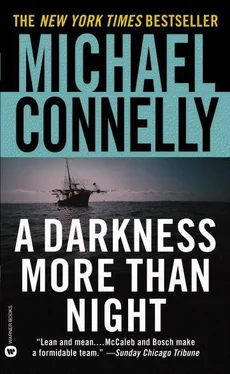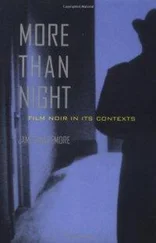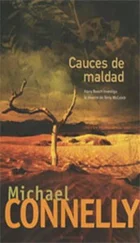McCaleb acted like he didn’t hear it. Miranda exhaled like she was tired when she got to him.
“I don’t know where Javier went. I can’t be standing here talking to you all night.”
“Let me ask you one last thing,” he said. “You ever remember the cop being in here with Eddie Gunn at the same time – either together or apart?”
She thought a moment and leaned forward.
“Maybe, it could’ve happened. But I don’t remember.”
McCaleb nodded. He was pretty sure that was the best he could get out of her. He wondered if he should leave some money on the bar. He’d never been good at that sort of thing when he was an agent. He never knew when it would be appropriate and when it would be insulting.
“Can I ask you something now?” Miranda asked.
“What?”
“You like what you see?”
He felt his face immediately begin to color with embarrassment.
“I mean, you were looking enough. I just thought I’d ask.”
She glanced over at the hookers and shared a smile. They were all enjoying McCaleb’s embarrassment.
“They’re real nice,” he said as he stepped away from the bar, leaving a twenty-dollar bill for her. “I’m sure they keep people coming back. Probably kept Eddie Gunn comin’ in.”
He headed toward the door and she called after him, her words hitting him in the back all the way to the door.
“Then maybe you oughta come back and try ’em out some time, Officer!”
As he went through the door he heard the hookers whoop and slap hands in a high five.
***
McCaleb sat in the Cherokee in front of Nat’s and tried to shake off the embarrassment. He concentrated on the information he had gotten from the bartender. Gunn was a regular and might or might not have been in there on the last night of his life. Secondly, she was familiar with Bosch as a customer. He, too, might or might not have been in there on the last night of Gunn’s life. The fact that this information had indirectly come from Bosch was puzzling. Again, he wondered why Bosch – if he was Gunn’s killer – had given him a valid clue to follow. Was it arrogance, a belief that he would never be considered a suspect and therefore not be brought up during the questioning at the bar? Or could there be a deeper psychological motivation? McCaleb knew that many criminals make mistakes that ensure their apprehension because subconsciously they do not want to get away with their crimes. The big wheel theory, McCaleb thought. Maybe Bosch was subconsciously making sure the wheel turned for him as well.
He opened his cell phone and checked the signal. It was good. He called Jaye Winston’s home number. He checked his watch while the phone was ringing and thought that it was not too late to call. After five rings she finally picked up.
“It’s me. I’ve got some stuff.”
“So do I. But I’m still on the phone. Can I call you when I’m done?”
“Yeah, I’ll be here.”
He clicked off and sat in the car waiting and thinking about things. He watched through the windshield as the white hooker from the bar stepped through the door with a man in a baseball cap in tow. They both lit cigarettes and headed down the sidewalk toward a motel called the Skylark.
His phone chirped. It was Winston.
“It’s coming together, Terry. I’m a believer.”
“What did you get?”
“You first. You said you got some stuff.”
“No, you. What I got is minor. It sounds like you hooked something big.”
“Okay, listen to this. Harry Bosch’s mother was a prostitute. In Hollywood. She got murdered when he was a little kid. And whoever did it got away with it. How is that for psychological underpinnings, Mr. Profiler?”
McCaleb didn’t answer. The new information was stunning and provided many of the missing pieces in the working theory. He watched the hooker and her customer at the window of the motel office. The man passed cash through and received a key. They went in through a glass door.
“Gunn kills a prostitute and walks away,” Winston said when he didn’t respond. “Just like what happened with his mother.”
“How’d you find this out?” McCaleb finally asked.
“I made that call we talked about. To my friend, Kiz. I acted like I was interested in Bosch and asked her if she knew if he was, you know, over his divorce yet. She told me what she knew about him. The stuff about his mother apparently came out a few years ago in a civil trial when Bosch got sued for a wrongful death – the Dollmaker, you remember that one?”
“Yeah, the LAPD refused to call us in on that one. That was also a guy who killed prostitutes. Bosch killed him. He was unarmed.”
“There’s a psychology going on here. A goddamn pattern.”
“What happened to Bosch after his mother was killed?”
“Kiz didn’t really know. She called him an institutional man. It happened when he was ten or eleven. After that he grew up in youth halls and foster homes. He went into the service and then the department. The point is, this is the thing we were missing. The thing that turned a no-count case into something Bosch wouldn’t let go.”
McCaleb nodded to himself.
“And there’s more,” Winston said. “I went through all the accumulated files – extraneous things I didn’t put in the murder book. I looked at the autopsy on the woman Gunn killed six years ago. Her name was Frances Weldon, by the way. There was one thing in there that now seems significant in light of what we now know about Bosch. Examination of the uterus and hips showed that at some point she’d had a child.”
McCaleb shook his head.
“Bosch wouldn’t have known that. He pushed his lieutenant through a window and was on suspension by the time there was an autopsy.”
“True. But he could and probably did look at the case files after he came back. He would have known that Gunn did to some other kid what was done to him. You see, it is all fitting. Eight hours ago I thought you were grasping at straws. Now it looks to me like you’re dead on.”
It didn’t feel all that good to be dead on. But he understood Winston’s excitement. When cases fell together the excitement could sometimes obscure the reality of the crime.
“What happened to her kid?” he asked.
“No idea. She probably gave the child up after the birth. That doesn’t matter. What matters is what it meant to Bosch.”
She was right. But McCaleb didn’t like the loose end.
“Going back to your call to Bosch’s old partner. Is she going to call him and tell him you asked about him?”
“She already did.”
“This is tonight?”
“Yeah, this all just went down. That was that call, her getting back to me. He passed. He told her he was still holding out hope for his wife coming back.”
“Did she tell him it was you who was interested?”
“She wasn’t supposed to.”
“But she probably did. This might mean he knows we’re looking at him.”
“That’s impossible. How?”
“I was just up there tonight. I was in his house. Then the same night he gets this call about you. A guy like Harry Bosch, he doesn’t believe in coincidences, Jaye.”
“Well, when you were up there, how did you handle it?” Winston finally asked.
“Like we said. I wanted more info on Gunn but sidetracked into talking about Bosch. That’s why I was calling you. I got some interesting stuff. Nothing that compares to what you got but stuff that also fits. But if he got this call about you right after I was there… I don’t know.”
“Tell me about your stuff.”
“All little stuff. He’s got the photo of the estranged wife prominently displayed in the living room. I was there less than an hour and the guy downed three beers. So there’s the alcohol syndrome. Symptomatic of interior pressures. He also spoke of something he called ‘the big wheel.’ It’s part of his belief system. He doesn’t see the hand of God in things. He sees the Big Wheel. What goes around comes around. He said guys like Gunn don’t really get away. Something always catches up to them. The wheel. I used some specific phrases to see if I could draw a reaction or disagreement. I called the world outside his door the plague. He didn’t disagree. He said he could deal with the plague as long as he got his shots at the carriers. It’s all very subtle, Jaye, but it’s all there. He’s got a Bosch print on the wall in the hallway. The Garden of Earthly Delights. It’s got our owl in it.”
Читать дальше












